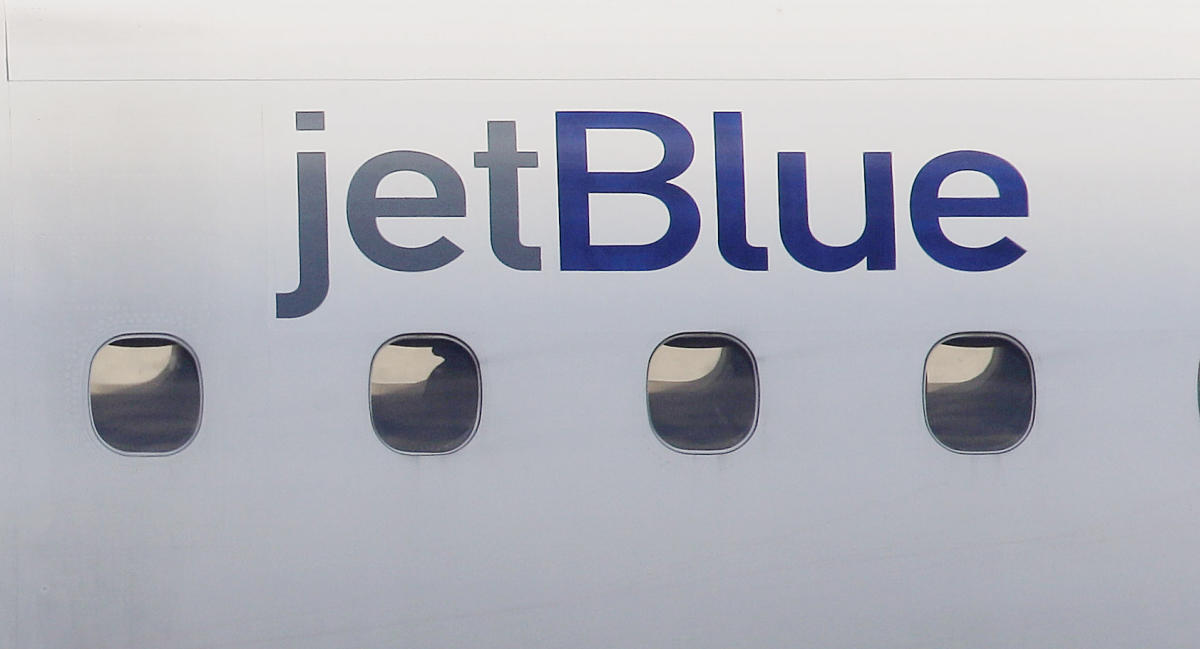The Biden administration faces a critical test in its efforts to combat consolidation in the airline industry. Lawyers for JetBlue Airways and the Justice Department will go head-to-head in court on Tuesday.
The administration is suing to block JetBlue’s proposed $3.8 billion acquisition of Spirit Airlines. This trial in federal district court in Boston has significant implications for the low-cost airline market, as Spirit is currently the largest budget carrier in the nation. If JetBlue prevails, Spirit will disappear.
The Justice Department recently achieved a victory in another lawsuit that put an end to a partnership between JetBlue and American Airlines.
Although JetBlue may not initially come to mind as a behemoth in an antitrust case, it is the sixth-largest U.S. airline in terms of revenue and aims to acquire the seventh-largest. If successful, JetBlue’s market share would still be less than 10% of the U.S. air-travel market, keeping it significantly smaller than American, United, Delta, or Southwest.
Despite its size, JetBlue has ambitious plans if it can acquire Spirit. The airline intends to expand its fleet by approximately 70%, revamp Spirit’s yellow planes, and improve the passenger experience.
JetBlue argues that it needs Spirit to enhance its competitive strength against larger airlines. The company positions itself as a disruptive and innovative force within the airline industry, claiming that it can reduce fares by directly competing with the industry giants on more routes.
On the other hand, the Justice Department insists that Spirit is the primary disruptor and should be protected.
In their pre-trial brief, government lawyers argued, “Consumers are better off with an independent Spirit, not a JetBlue intent on removing seats from planes and charging higher fares.” They believe that cost-conscious consumers will suffer the most from this acquisition.
JetBlue counters by suggesting that other discount airlines will fill the void left by Spirit. However, the Justice Department disagrees, pointing out that all airlines, including budget carriers, face growth limitations due to plane and pilot shortages.
Spirit, headquartered in Miramar, Florida, is categorized as an “ultra-low-cost carrier,” known for offering incredibly low fares but compensating for it by charging high fees for services such as checked baggage or carry-on items. Spirit even charges for soft drinks. Nerdwallet, a personal-finance site, estimates that passengers should expect to pay $137 in fees for a typical one-way flight, compared to $35 or less at larger airlines such as JetBlue.
This is not the first time the government has challenged an airline merger. In 2013, regulators filed a lawsuit to prevent the merger of American Airlines and US Airways. Ultimately, the deal proceeded without a trial as the airlines agreed to relinquish gates, takeoff, and landing rights at seven major airports.
JetBlue attempted a similar strategy by proposing to divest gates and rights in Boston, the New York City area, and Fort Lauderdale, Florida, to Frontier and Allegiant. However, the government dismissed the offer, claiming that these discount carriers had already committed to servicing the same routes currently operated by Spirit.
As the Biden administration tries to rectify the consequences of past mergers (which eliminated competitors like Northwest, Continental, US Airways, and AirTran), it now faces potential remorse for those decisions. Before the current case, the Justice Department also took legal action to dismantle a revenue-sharing partnership between JetBlue and American Airlines in New York and Boston.
This trial takes place in the same Boston courthouse where the Justice Department previously prevailed against JetBlue and American, although a different judge will preside over the case.
Prior to the opening bell on Tuesday, shares of JetBlue Airways Corp. experienced a sharp decline due to wider losses than anticipated. The company attributes these losses to increasing fuel costs and adverse weather conditions. JetBlue reported a loss of $153 million, or an adjusted loss of 39 cents per share, which is 12 cents worse than what Wall Street expected. Revenue also fell short.
Consequently, shares fell nearly 8%.


